– Brumell
Statements from the policemen present on the ground at the time of the July 18 protestor shootings in Linden did not indicate that it was the police who fired, acting Police Commissioner Leroy Brumell said yesterday.
The only witness to testify before the Commission of Inquiry into the shootings for a second day running, Brumell continued to face questions about the actions of the police in Linden, while several exhibits were tendered into evidence. These included a unit book, activity book, the Tactical Service Unit Station Diary, the Training Programme for Recruits and Standing Orders, which are property of the Guyana Police Force.
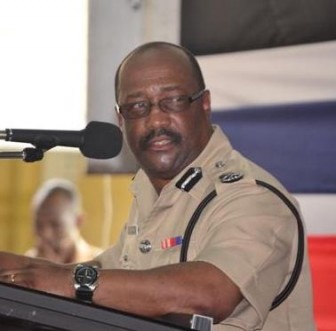
The commission is mandated to inquire and report on the circumstances surrounding the shooting to death of three Linden men, Allan Lewis, Ron Somerset, and Shemroy Bouyea and the injury of several others at the bridge on July 18, during a protest over the increase in electricity tariffs.
At yesterday’s hearing at the Supreme Court Law Library, the Chairman of the commission, former Chief Justice of Jamaica Lensley Wolfe, was at pains to remind lawyers from all sides that the nature of the proceedings was not adversarial but inquisitorial and in the circumstance their lines of questioning were unnecessary and bore little weight.
With Brumell’s admission that the statements from the policemen did not indicate that they fired, attorney Nigel Hughes then read out part of a statement of an eyewitness contained in a large volume of witnesses testimony provided to the commission and sought to question Brumell about aspects of it. However, the commissioners eventually stopped him, pointing out that the statements were not evidence in the inquiry as yet.
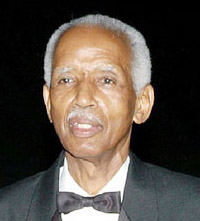
Hughes, who along with attorneys Selwyn Peters, Omeyana Hamilton and Leslyn Charles is representing the interest of the families of the deceased, did not agree with the commissioners but said that he accepted their guidance.
In reference to the tendered exhibits, Hughes pointed out to Brumell that the names of five officers who were recorded as leaving for Linden were not recorded in the property book. The commissioner noted that there were some lines crossed through the names and the weapon numbers and it was later agreed that the person who made the entries would have to explain. He added that it appeared as if a mistake was made in relation to the crossed out numbers.
Senior Counsel KD Knight, of Jamaica, asked him to ascertain whether the weapons that were crossed out were sent for ballistics tests, while Hughes noted that “phantom names” were recorded in the book as being issued weapons that had nowhere to go. Brumell agreed that it was not normal for persons to be issued weapons and not go anywhere.
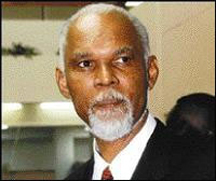
Hughes also returned to questioning about possible contact between Divisional Commander Clifton Hicken and Home Affairs Minister Clement Rohee. Hughes had told the commission on Monday that the victims of the shooting are specifically alleging that in the 45 minutes prior to the shooting there was at least one telephone call from the minister to Hicken.
Brumell again said he spoke to Rohee twice on the afternoon of July 18; before and after the shooting. Asked who initiated the call, Brumell, after a long pause, said “I called him, sir” and he noted that Rohee called him after the shooting.
An hour before the shooting, he said, he spoke to Hicken, who advised him that the bridge was not cleared and that the police were attempting to do so. Brumell said he instructed Hicken to talk to the people, seek out their leaders and coerce them off the bridge. He reiterated that he gave no instructions for shots to be fired.
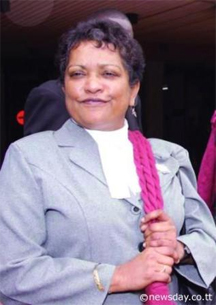
Brumell recalled that around 5.15pm, Hicken called him and told him the situation was unmanageable as persons were cursing and throwing missiles, bottles and stones. Later, when he summoned Hicken for an update, Brumell said, the officer did not indicate who fired even though he said shots were fired and people died. Hicken, he added, also did not indicate that he had spoken to Rohee before the shooting.
Conditions
for protest
Brumell also testified that permission was granted to Regional Chairman Sharma Solomon for the protest on July 18 on a number of conditions, including that the protestors would be peaceful, listen to ranks on the ground and walk “swiftly” across the Mackenzie/Wismar Bridge.
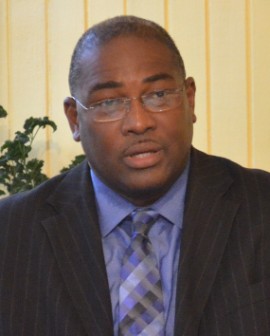
He also told his lawyer Hukumchand, who is representing the interest of the police force at the inquiry, that there was a “clear condition” that the protestors would not block the bridge.
At this point, Brumell was asked by Senior Counsel Dana Seetahal of Trinidad and Tobago, one of the five commissioners, if he had a copy of the conditions that he could present. He said there was such a copy and, failing to find it in his file, he promised to present it at a later time.
Although Hukumchand tried to ask whether after conditions of a protest march are breached the police could use its discretion to get the people to disperse, Justice Wolfe pointed out that the standard operational proceedings of the police is to use reasonable force and he posed the rhetorical question of whether the protestors were behaving in such a way to warrant the discharge of firearms. He added that the focus should be on the question of whether the police acted reasonably to clear the bridge or if they used more force than was necessary.
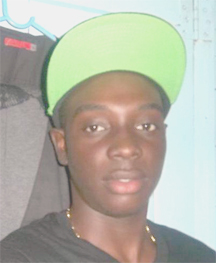
On Monday, Brumell had admitted that there was no justification for the use of lethal force on the protestors, while noting that he had directed that the leaders of the protest be engaged to clear the bridge.
According to Brumell’s testimony yesterday, the protest march was slated to proceed at 9 am and the protestors were supposed to cross the bridge and head to Kara Kara. The commissioner was asked about the importance of the bridge as a linkage between the interior and the city and in acknowledging its import he stated that a “large part” of the country’s economic life was “affected” by the blocking of the bridge.
According to his information, there had been in excess of 600 protestors who were chanting that they were not paying any increase and that they would block the bridge. They also put up tents and were playing party music, adding that they were spoken to by two officers, including Hicken, but they did not listen.
Hukumchand was at this point informed by former Chancellor Justice Cecil Kennard that he was leading hearsay evidence, since Brumell was in his office at the time of the protest. But the lawyer pointed out that Brumell was allowed to give hearsay and speculative evidence before.
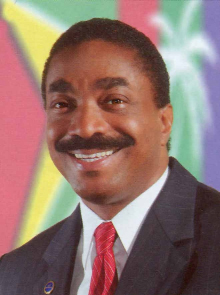
Justice Wolfe, in one of his many interventions during the examination of Brumell by various lawyers, said that it was his view that what the Commissioner of Police had to say had “little or no weight.”
“I am comforted sir,” responded Hukumchand, who nonetheless proceeded with his questioning.
He asked Brumell to confirm whether a trucker was robbed of money and documents at the bridge during the protest and whether the protestors were blocking the bridge with tents, logs and old vehicles, to which the commissioner responded in the affirmative.
Justice Kennard again intervened and reminded the lawyer that Brumell was in the box for two days and asked whether he could ask him “more useful questions”.
“You seem to be on a fishing exhibition,” he told the lawyer.
Hukumchand was determined to press on but he was quickly interrupted by Commissioner Seetahal, who said he was stretching the hearsay evidence and it was not fair to the witness. Justice Wolfe also reminded him that Brumell had already opined on the actions of the police and that he could direct his line of questioning to other witnesses.
At this point, Brumell was hanging his head and staring at the commissioners.
Meanwhile, after the exhibits were laid over, attorney Basil Williams, who is representing APNU’s interest before the commission, pointed out that the force’s Standing Orders stated that an arms book must be maintained at all stations, but he looked at the unit book and it did not say what type of arms were issued.
He also told Brumell that he must present something more “legible,” since there was some difficulty understanding what was written in the book. The comment by Williams prompted Justice Wolfe to ask whether he wanted the commissioner to make another book. “That is the book, you want to go and make another book?” he asked in one of several interventions in which he questioned the relevance of Williams’ line of questioning.
Knight then asked Brumell that the “maker of the book” be made available, since more than likely he would be able to read his own handwriting.
Williams later asked Brumell whether he had the report of the post-mortem examination done on the bodies of the three slain Lindeners and at that point Justice Wolfe asked him if he was representing the interest of the three men. To that, Williams responded that APNU has an interest because Linden is one of its constituencies and one of its largest support bases, which gave it “overwhelming support” at the last elections.
In response to another question, Brumell said bodies of the men only came into the possession of the police days after the shooting “because of what was happening at Linden.” He also confirmed to the commission that there are only two pathologists in Guyana, both of whom are employed by the government. An independent pathologist would first need to have to get a work permit from the Ministry of Home Affairs, he also explained.
The inquiry continues today, when Hicken and Assistant Superintendent Patrick Todd are expected to give testimony.





